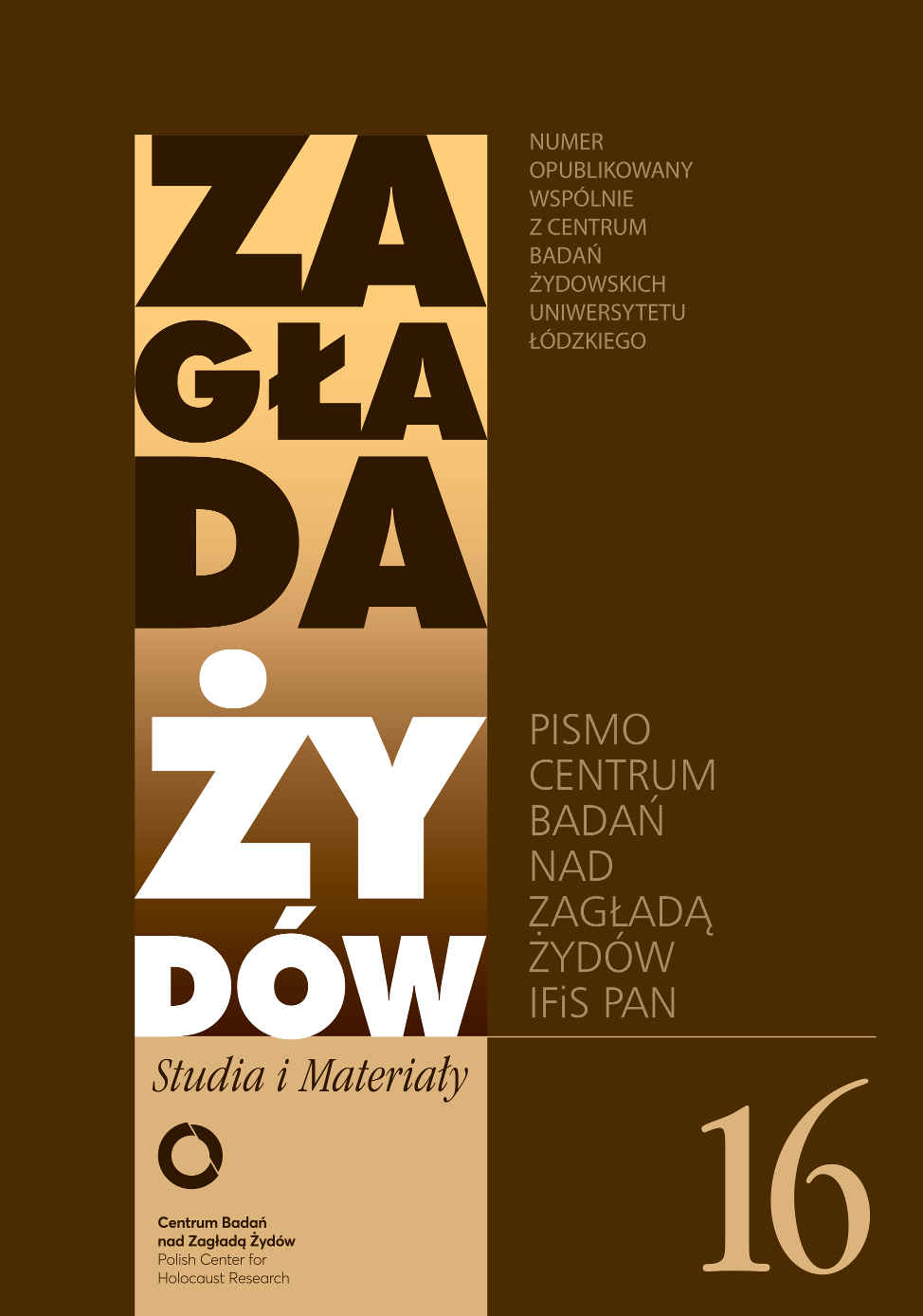Ogłoszenie
AVAILABLE NOW - ONLINE FIRST - 16th volume of "Holocaust Studies and Materials" and leading topic: 75th anniversary of the liquidation of Lodz ghetto
The main theme of the 16th issue of our annual is the 75th anniversary of the liquidation of the Łódź ghetto.
 As the paper edition delayed by COVID is slowly shifting between printing machines, today we are presenting to the readers the FULL VERSION OF THE NUMBER in the ONLINE FIRST formula. Connoisseurs of print and rustling pages, as well as the weight of this almost 900-page volume, must exercise their patience until the last days of December.
As the paper edition delayed by COVID is slowly shifting between printing machines, today we are presenting to the readers the FULL VERSION OF THE NUMBER in the ONLINE FIRST formula. Connoisseurs of print and rustling pages, as well as the weight of this almost 900-page volume, must exercise their patience until the last days of December.
We publish Marian Turski’s testimony, Andrzej Czyżewski’s study on the historical policy of the communist authorities of Poland concerning the ghetto, Ewa Wiatr’s article about youth groups in Marysin, and Irmina Gadowska’s text about painters. Adriana Bryk discusses the history of the postal services in the ghetto, Krystyna Radziszewska describes a lot of European Jews deported to the ghetto, Andrzej Grzegorczyk discusses the organization of the first wave of deportations from the ghetto, Jacek Walicki compares the functioning of the ghetto archives, and Sylweriusz Królak analyzes descriptions of walks in the two ghettoes. We also publish Viktor Hahn’s ghetto diary and Mordechaj Żurawski’s testimony.
The Łódź ghetto was established 80 years ago by the order of the German authorities. One-third of the city’s population was detained there and subjected to extermination. Wohngebiet der Juden — Jewish residential quarter — for that was how the ghetto located in Bałuty and the Old Town was euphemistically called, became the place of the ordeal of approx. 200,000 people from Łódź, nearby towns, and inhabitants of towns in the Reich and the Protectorate. Their tragic fate is undoubtedly one of the most important events in the social history of Łódź.
The said anniversary was a pretext for offering our readers this particular main theme of the 16th issue of the Zagłada Żydów. Studia i Materiały periodical. But this was not our only inspiration. There has been more and more interest in the Łódź “closed quarter” in the scholarly world and mass culture in Poland and abroad, which has translated into a wide range of topics discussed. This publication undertakes to present at least part of the current state of research and/or the map of the topics taken up by representatives of various disciplines. Because of the subject discussed in this issue, our editorial staff was joined by scholars associated with the Jewish Research Center of the University of Łódź, which is a co-publisher of this issue of our annual. We are convinced that this will contribute to an integration of the milieu of Holocaust scholars and will be the next step on the path to cooperation between the Warsaw and Łódź research centers
 English
English
 Język Polski
Język Polski


